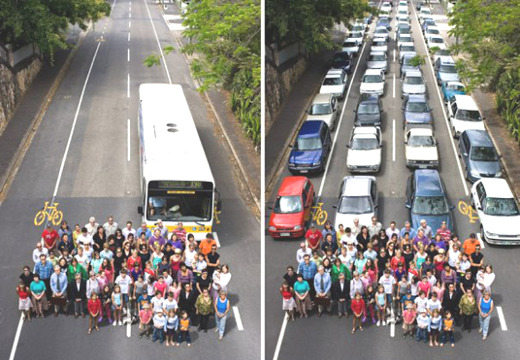By Rory Mulholland, Paris, The Telegraph, 25 March 2018
European cities are increasingly looking toward free
transport in a bid to combat air pollution.
Anne Hidalgo, the Paris mayor, is the latest local leader
hoping to make public transport free across the city, emulating the success of
a handful of small towns across France which let residents board buses and
trams without paying a cent.
The German government is also considering rolling out free
transport across the entire country - with the same aim as in France of
reducing air pollution - if a pilot scheme in five big cities this year works
out.
Niort in western France has been running free buses since
last September for its 125,000 inhabitants.
The scheme has been an enormous success, boosting passenger
numbers by 130 per cent on some routes, slightly reducing the number of cars on
the roads, and costing the town little more than when people had to buy
tickets, said mayor Jérôme Baloge.
Mayor of Paris, Anne Hidalgo, is keen to make the city less
polluted by the 2024 Olympic Games Credit: PHILIPPE LOPEZ/AFP/Getty
Images
But he agreed that making metros, buses, trams and suburban
trains free in a big city is a far more radical, if not revolutionary, idea.
“In Niort the revenue from ticket sales represented only 10
per cent of cost of running public transport. In Paris it’s around half… And our
buses were often half empty, while in Paris the metro and buses are packed,” he
said.
Ms Hidalgo said last week that she was commissioning a study
into free transport and wants officials and experts to report back by the end
of 2018 on whether the scheme would be financially feasible.
The mayor has made a priority of tackling smog and is to ban
diesel cars in the capital by 2024, when Paris will host the Summer Olympics.
The study will also look at the possibility of introducing a
toll, like London's congestion charge, to discourage motorists from driving
into Paris.
Supporters of the toll say it could be used to offset the
cost of providing free transport.
Ms Hidalgo only has power over the city of Paris, which with
2.2 million residents makes up only a small part of the greater Paris region
with a population of more than 12 million - 4.2 million of whom use public
transport.
Valérie Pecresse, the conservative head of the wider Paris
region and a rival of Ms Hidalgo, said she was "open to all new
ideas" but warned the mayor against "going it alone" on free
transport.
Ticket sales bring in €3 billion (£2.6 billion) a year that
offset the total transport budget of €10 billion for the region, she noted,
saying that this would have to be compensated for somehow and that she would
not settle for "a euro less".
There was similar consternation about who was going to pay
when it was revealed last month that the German government was looking at plans
to make public transport free to try to reduce road traffic and lower pollution
levels.
Free transport will be tested in five cities, including the
former capital Bonn and the industrial cities Essen and Mannheim, by the end of
the year, and if successful will be rolled out to more cities across the
country, ministers said.
But Helmut Dedy, the head of the Council of German Cities,
warned that the federal government would have to finance public transport if it
wanted to make it free.
Most local transport in Germany is owned by municipalities.
Greenpeace came up with an original idea - it proposed that
the government “should make sure that the car manufacturers finance the
emergency measure” of free transport.


